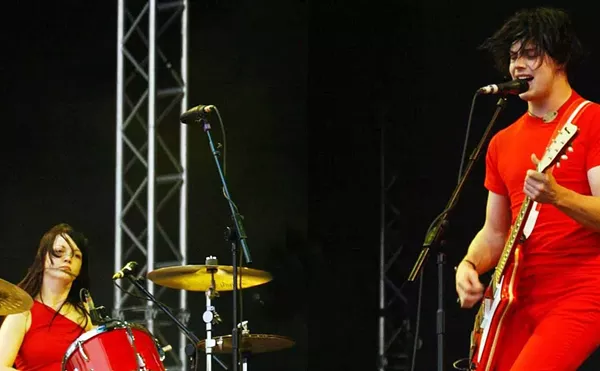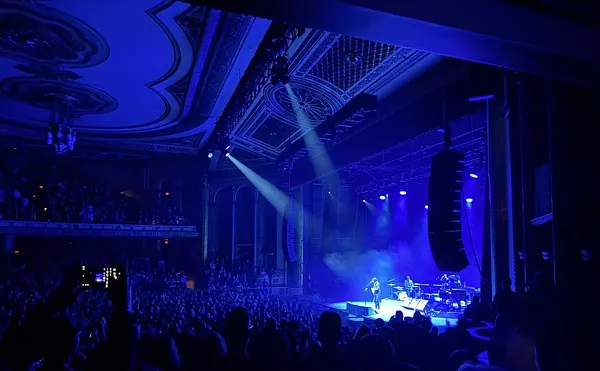
Audio By Carbonatix
[
{
"name": "GPT - Leaderboard - Inline - Content",
"component": "35519556",
"insertPoint": "5th",
"startingPoint": "3",
"requiredCountToDisplay": "3",
"maxInsertions": 100,
"adList": [
{
"adPreset": "LeaderboardInline"
}
]
}
]
Early tracks, such as Farben’s "Live at the Sahara Tahoe, 1973," establish the disc’s steady-but-relaxed pace and sunglasses-at-night mood, flexing round, pinball-like beats beneath a myriad of blips, drones and synth chords. LoSoul’s "Synchro" pushes the beats a bit further, exploring their weight as well as their funk quotient, before leading into Bell’s new, strong, funky track, "The Wild Life," complete with repeated cricketlike buzzing and a gentle synth whirlpool that slips in as fast as it leaves the mix.
The overall feeling of the record is the overpowering one of standard techno movement through space and time, whether driving through Detroit’s highway caverns or walking, as Bell does on the cover of this album, through man-sized air-conditioning vents. But as in all great techno, Bell has sifted through his own chosen journey, picking records and themes that hint at deeper concerns within Detroit’s cultural geography.
This is perfectly exemplified by the final track, fellow Detroit native Shake’s "Detroit State of Mind." It’s the only track without Bell’s standard bouncy beat, sounding instead like a hip-hop cash machine stuck in an elevator with an easy listening station and the DSO. But in the track’s beginning we hear the anonymous speech of a man explaining that Detroit is (was?) the "Black Power capital of America." And soon the speaker concludes, "Of course, a lot of us, even in Detroit, got so hung up on Black that Power shot clean on past us."
Somber but still resolutely funky, the track brings the international arc of the disc back to the central ethos of great Detroit techno, wherever it may be created. Under Bell’s sure hand and Shake’s enigmatic but powerful sense of politics, techno’s future sounds as brilliantly open as ever.





